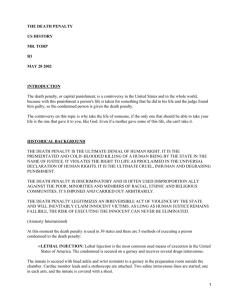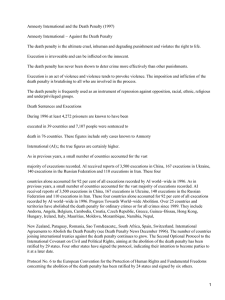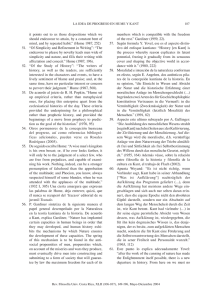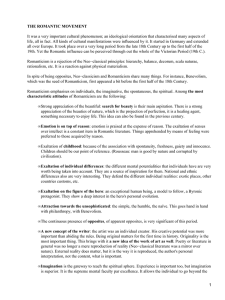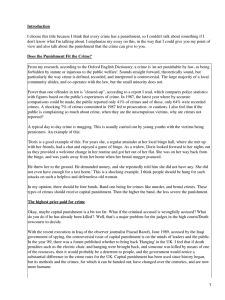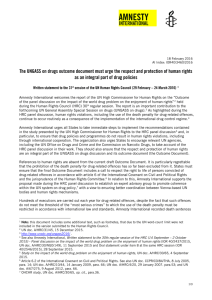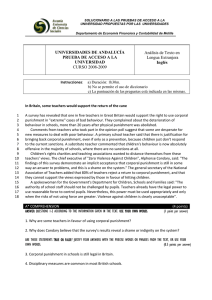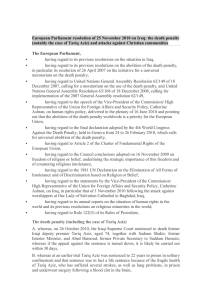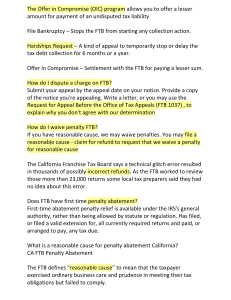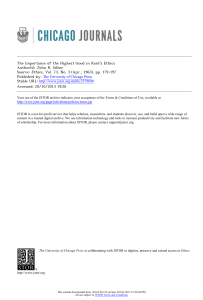Subido por
Kaory Araiza Yesaki
Kantian Ethics & Crime: Analysis of Death Penalty & Breivik Case
Anuncio
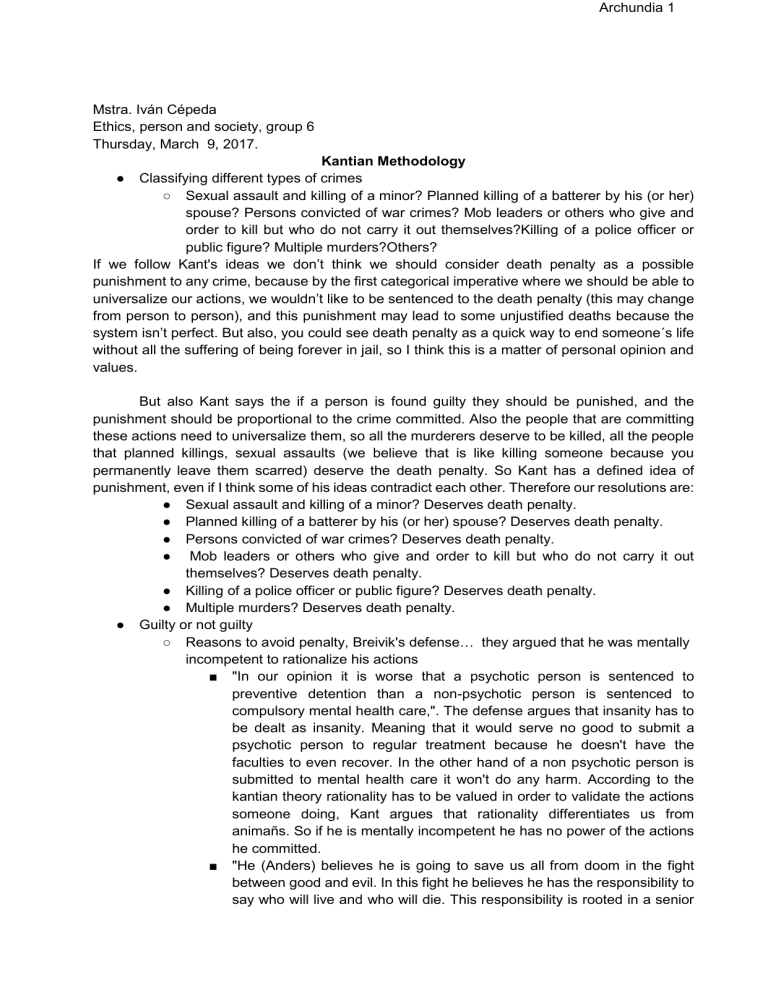
Archundia 1 Mstra. Iván Cépeda Ethics, person and society, group 6 Thursday, March 9, 2017. Kantian Methodology Classifying different types of crimes ○ Sexual assault and killing of a minor? Planned killing of a batterer by his (or her) spouse? Persons convicted of war crimes? Mob leaders or others who give and order to kill but who do not carry it out themselves?Killing of a police officer or public figure? Multiple murders?Others? If we follow Kant's ideas we don’t think we should consider death penalty as a possible punishment to any crime, because by the first categorical imperative where we should be able to universalize our actions, we wouldn’t like to be sentenced to the death penalty (this may change from person to person), and this punishment may lead to some unjustified deaths because the system isn’t perfect. But also, you could see death penalty as a quick way to end someone´s life without all the suffering of being forever in jail, so I think this is a matter of personal opinion and values. ● But also Kant says the if a person is found guilty they should be punished, and the punishment should be proportional to the crime committed. Also the people that are committing these actions need to universalize them, so all the murderers deserve to be killed, all the people that planned killings, sexual assaults (we believe that is like killing someone because you permanently leave them scarred) deserve the death penalty. So Kant has a defined idea of punishment, even if I think some of his ideas contradict each other. Therefore our resolutions are: ● Sexual assault and killing of a minor? Deserves death penalty. ● Planned killing of a batterer by his (or her) spouse? Deserves death penalty. ● Persons convicted of war crimes? Deserves death penalty. ● Mob leaders or others who give and order to kill but who do not carry it out themselves? Deserves death penalty. ● Killing of a police officer or public figure? Deserves death penalty. ● Multiple murders? Deserves death penalty. ● Guilty or not guilty ○ Reasons to avoid penalty, Breivik's defense… they argued that he was mentally incompetent to rationalize his actions ■ "In our opinion it is worse that a psychotic person is sentenced to preventive detention than a non-psychotic person is sentenced to compulsory mental health care,". The defense argues that insanity has to be dealt as insanity. Meaning that it would serve no good to submit a psychotic person to regular treatment because he doesn't have the faculties to even recover. In the other hand of a non psychotic person is submitted to mental health care it won't do any harm. According to the kantian theory rationality has to be valued in order to validate the actions someone doing, Kant argues that rationality differentiates us from animañs. So if he is mentally incompetent he has no power of the actions he committed. ■ "He (Anders) believes he is going to save us all from doom in the fight between good and evil. In this fight he believes he has the responsibility to say who will live and who will die. This responsibility is rooted in a senior Archundia 2 ● position in a non-existent organisation." With this the defense is also arguing that he was sane enough to rationalize his actions which it kind of contradicts their main statement. Even though his logic and perspective of the world is twisted he understands that in his hypothetical world this action will produce a good that will benefit all society. Therefore how can we judge someone that tried to make “a good action”, his intent wasn't really to harm society but to make it better with some kind of depuration. According to Kant reason will lead us to the categorical imperative ■ The defense “describe him as a "tragic person" who had failed to become the success he thought he should be”. They argue that the situations he lived through his life have harmed him mentally and therefore he has lost his capability to analyze the situations objectively. He only relates the traumatic events to his reality therefore his logic became distorted. So we could say that they took away his autonomy to act freely, because now his actions are lead by fear. So "Instead of causing fear, a tragic person emerges; a young man who in his struggle to be big becomes part of an imaginary network which lets him reach his unattainable goal," his reality has been distorted. ○ Breivik (motives behind his actions) ■ Breivik declares himself as an autonomous human being, he says he performed those actions because he truly believed in what he was doing. He argued that he was part of pan-European right wing terror network called The Knights Templar and that his victims were legitimate targets in his battle against the "cultural-Marxists" encouraging an Islamic colonisation of Europe and that and his attacks were necessary to stop the "Islamisation" of Norway. Breivik says he has no personality disorders and is a reasonable human being that deserves to be treated with dignity. Kant approves that he acts based on his reason, that this way his actions are justified and validate as universal imperatives. Second article Breivik was found a rational man because his attack was meticulously planned, he also went under a psychological evaluation that concluded that he had narcissistic and antisocial personality disorders but was criminally responsible. This evaluation was taken into account when Breivik was declared a sane man and sentenced to 21 years in jail. Even Breivik believed he was a rational man. He did what he did for his own reasons, he thought he was stopping the "Islamisation" of Norway. The punishment he got was not a just punishment because if he is a reasonable human being then he must be responsible for his actions and accept the consequences of what he chose to do as an autonomous human being. He should have gotten more time in jail. Based on Kant’s universal law in this case everyone would be able to go around attacking people, which is wrong and is the reason why he should have gotten a harsher punishment. Breivik was also treating the people he killed as a means, he was using their deaths to stop the "Islamisation" of Norway, which goes against one of Kant’s imperatives.
